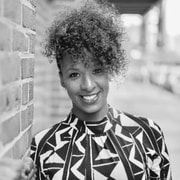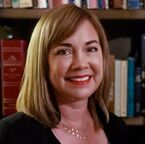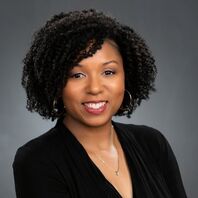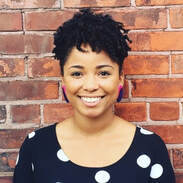Meet your division A officers
Division A Officers (2020-2021)
|
Vice President (2019-2021)
Susan Faircloth Colorado State University susan.faircloth@colostate.edu Secretary (2019-2021) Liz Hollingworth University of Iowa liz-hollingworth@uiowa.edu Equity, Inclusion, & Action Committee Chair (2020-2021) Daniel Liou Arizona State University dliou@asu.edu Graduate Student Senior Representative (2020-2021) Jingtong Dou University of South Carolina doutt2007@gmail.com Program Chair (2020-2021) Vincent Cho Boston College vincent.cho@bc.edu |
Vice-President Elect (2020-2021)
Mariela Aime Rodriguez University of Texas at San Antonio mariela.rodriguez@utsa.edu Secretary Elect (2020-2021) Detra DeVerne Johnson University of Houston ddjohnsemail@yahoo.com Equity, Inclusion, & Action Committee Chair (2020-2021) Katherine Rodela Washington State University katherine.rodela@wsu.edu Graduate Student Junior Representative (2020-2021) Bita Razavi-Maleki University of Texas bitaraz@utexas.edu Program Co-Chair (2020-2021) Virginia Walker Snodgrass Rangel University of Houston vrangel4@Central.UH.edu |
|
Program Committee Section Chairs (2020-2021)
Section 1: Leadership Co-Chairs Chris Torres Michigan State University ctorres@msu.edu Jennie Weiner University of Connecticut jennie.weiner@uconn.edu Section 2: School Organization & Effects Hollie Mackey North Dakota State University Hollie.mackey@gmail.com |
Section 3: School and District Improvement Timothy Drake North Carolina State University tadrake@ncsu.edu Section 4: School Contexts and Communities Joshua Childs University of Texas at Austin jcchildspitt@gmail.com Section 5: Leadership Preparation Development Yingying Wang Georgia State University ywang103@gsu.edu |
2019-2020 Officer InTerViews
Program chair dr. SORIBEL GENAO

How do you perceive your role as a scholar and academic?
My perceived role as a scholar and academic are intertwined. My role as a scholar is where and when I am constantly learning, gathering information via research and listening to and about other scholars' approaches, and learning how to embed these ideas in my own work and influence. My role as an academic is utilizing these ideas in my own research, classes, global educational environments and even personal environments at times. These roles are critical to how and why the life-learning processes as a learner continue to generate the ideas our roles as educators.
Please tell our members a bit about your research interests.
My research interests have evolved since my career began. While I am still very interested in the systemic areas of urban education administration and policy, collaboration and the impact of diversity, I have been drawn to the coalition building of Black and Brown communities. Considering the current political climate, it is evident that our Black and Brown communities are in need of much more that what is currently provided beyond education.
What inspired you to run for your position? What do you hope to accomplish in your position?
Since being involved with AERA, I have met and continue to be introduced to so many wonderful people within DivA and beyond. My inspiration was not difficult to find, considering my involvement with DivA chairs two years prior. Drs. Rosa River-McCutchen and Cristobal Rodríguez became mentors in their roles and leadership. I hope to accomplish the cultivation of continued exchange of ideas, transparency, and more collaboration among divisions and other education communities.
What would you like the readers to know about you and your journey regarding leadership and Division A?
I would like readers to know that we are part of a bigger community beyond our institutions and departments. I aspire to continue to work with DivA beyond my role as chair. The opportunity has certainly taught me the value of networking, different methods of constant learning beyond reading and bringing the ideas to the table that continue to be resisted. My journey, while still new, has already taught me about the importance of passion and commitment during this socio-political climate and times.
What is your vision for the education leadership field? What role should Division A play in making this vision a reality?
My vision for the EL field is a broad one with narrow intentions. Born and raised in New York City has informally introduced me to the world of accessibility to a degree. The limitations, however, have been quite evident in communities and schools in urban environments. As an education leadership professor at CUNY and working with the nation's largest school district, we are yearning for potential leaders who are truly passionate about instruction, leadership and truly humanizing the roles of leadership, while leveraging collaboration.
DivA can play a role by creating more invited spaces for plans of actions beyond conversations to take place. In the past, the topics around inequity, social justice and race have been invited, presented and do not seem to go beyond the meetings at conferences. It would be ideal to have AERA at the forefront to discuss accountability metrics of members, institutions, and agencies. It is crucial for members to be aware of their biases and how their values and ethics play a role in their work or lack thereof.
My perceived role as a scholar and academic are intertwined. My role as a scholar is where and when I am constantly learning, gathering information via research and listening to and about other scholars' approaches, and learning how to embed these ideas in my own work and influence. My role as an academic is utilizing these ideas in my own research, classes, global educational environments and even personal environments at times. These roles are critical to how and why the life-learning processes as a learner continue to generate the ideas our roles as educators.
Please tell our members a bit about your research interests.
My research interests have evolved since my career began. While I am still very interested in the systemic areas of urban education administration and policy, collaboration and the impact of diversity, I have been drawn to the coalition building of Black and Brown communities. Considering the current political climate, it is evident that our Black and Brown communities are in need of much more that what is currently provided beyond education.
What inspired you to run for your position? What do you hope to accomplish in your position?
Since being involved with AERA, I have met and continue to be introduced to so many wonderful people within DivA and beyond. My inspiration was not difficult to find, considering my involvement with DivA chairs two years prior. Drs. Rosa River-McCutchen and Cristobal Rodríguez became mentors in their roles and leadership. I hope to accomplish the cultivation of continued exchange of ideas, transparency, and more collaboration among divisions and other education communities.
What would you like the readers to know about you and your journey regarding leadership and Division A?
I would like readers to know that we are part of a bigger community beyond our institutions and departments. I aspire to continue to work with DivA beyond my role as chair. The opportunity has certainly taught me the value of networking, different methods of constant learning beyond reading and bringing the ideas to the table that continue to be resisted. My journey, while still new, has already taught me about the importance of passion and commitment during this socio-political climate and times.
What is your vision for the education leadership field? What role should Division A play in making this vision a reality?
My vision for the EL field is a broad one with narrow intentions. Born and raised in New York City has informally introduced me to the world of accessibility to a degree. The limitations, however, have been quite evident in communities and schools in urban environments. As an education leadership professor at CUNY and working with the nation's largest school district, we are yearning for potential leaders who are truly passionate about instruction, leadership and truly humanizing the roles of leadership, while leveraging collaboration.
DivA can play a role by creating more invited spaces for plans of actions beyond conversations to take place. In the past, the topics around inequity, social justice and race have been invited, presented and do not seem to go beyond the meetings at conferences. It would be ideal to have AERA at the forefront to discuss accountability metrics of members, institutions, and agencies. It is crucial for members to be aware of their biases and how their values and ethics play a role in their work or lack thereof.
SECRETARY dr. LIz hollingworth

How do you perceive your role as a scholar and academic?
I see myself first and foremost as a teacher. As a Professor of Educational Administration, I have worked with Iowa school principals and superintendents for over a decade and built strong relationships with school district leaders, as well as with the staff at the Iowa Department of Education. My doctoral students apprentice with me to conduct this work with Iowa school districts, which has included training and evaluation on issues of curriculum, school improvement, student assessment, and school leadership.
Please tell our members a bit about your research interests.
My research focuses on issues of leadership, evaluation, and assessment: in particular, how school reform policies affect classroom practice, evaluation, and school administration. I am the Director of the Center for Evaluation and Assessment at the University of Iowa, working with a team of staff and graduate students to conduct multiple forms of program evaluation in collaboration with colleges, universities, and school systems.
What inspired you to run for your position? What do you hope to accomplish in your position?
I was inspired to run because I want to serve as the liaison between AERA and my colleagues in Educational Leadership. I am a very organized person, so I look forward to tracking job announcements and professional opportunities and communicating those to the Division A membership. My hope is also to regularly maintain our AERA Division A website.
What would you like the readers to know about you and your journey regarding leadership and Division A?
Last year, I served as the chair of the Excellence in Research Award for Division A. I also have been the Chair and Past-Chair of the Learning and Teaching in Educational Leadership Special Interest Group of AERA, on the Executive Committee of UCEA, and was awarded the 2015 UCEA Distinguished Service Award for extraordinary commitment, excellence, leadership, productivity, generosity, and service.
What is your vision for the education leadership field? What role should Division A play in making this vision a reality?
My vision for educational leadership as a field is that we train the next generation of school leaders to know how to use program and personnel evaluation to ensure the best use of our time with children. So many really innovative school improvement efforts go unevaluated and languish for want of data to inform decisions. Or worse, implementation failure is mistaken for a failed program. I would love to see Division A scholars consider how we can include the study of program evaluation in our own educational leadership training programs.
I see myself first and foremost as a teacher. As a Professor of Educational Administration, I have worked with Iowa school principals and superintendents for over a decade and built strong relationships with school district leaders, as well as with the staff at the Iowa Department of Education. My doctoral students apprentice with me to conduct this work with Iowa school districts, which has included training and evaluation on issues of curriculum, school improvement, student assessment, and school leadership.
Please tell our members a bit about your research interests.
My research focuses on issues of leadership, evaluation, and assessment: in particular, how school reform policies affect classroom practice, evaluation, and school administration. I am the Director of the Center for Evaluation and Assessment at the University of Iowa, working with a team of staff and graduate students to conduct multiple forms of program evaluation in collaboration with colleges, universities, and school systems.
What inspired you to run for your position? What do you hope to accomplish in your position?
I was inspired to run because I want to serve as the liaison between AERA and my colleagues in Educational Leadership. I am a very organized person, so I look forward to tracking job announcements and professional opportunities and communicating those to the Division A membership. My hope is also to regularly maintain our AERA Division A website.
What would you like the readers to know about you and your journey regarding leadership and Division A?
Last year, I served as the chair of the Excellence in Research Award for Division A. I also have been the Chair and Past-Chair of the Learning and Teaching in Educational Leadership Special Interest Group of AERA, on the Executive Committee of UCEA, and was awarded the 2015 UCEA Distinguished Service Award for extraordinary commitment, excellence, leadership, productivity, generosity, and service.
What is your vision for the education leadership field? What role should Division A play in making this vision a reality?
My vision for educational leadership as a field is that we train the next generation of school leaders to know how to use program and personnel evaluation to ensure the best use of our time with children. So many really innovative school improvement efforts go unevaluated and languish for want of data to inform decisions. Or worse, implementation failure is mistaken for a failed program. I would love to see Division A scholars consider how we can include the study of program evaluation in our own educational leadership training programs.
Equity, Inclusion & Action Committee CHAIR DR. Lolita A. Tabron

How do you perceive your role as a scholar and academic?
I am a critical, mother-scholar who knows first hand the magnitude of educational inequities and its consequences. My personal and professional experiences have fueled my deep commitment to supporting the development of the next generation of school leaders who think deeply and critically about policies and data so that their leadership philosophies, policies, and practices do not perpetuate systems of marginalization.
Please tell our members a bit about your research interests.
My research agenda is the composite of high-level, critical analyses of policies shaping educational equity, access, and opportunity in K-12 education for African American youth, their families, and other underrepresented communities. I have developed a community-engaged research agenda that focuses on the advocacy of culturally responsive educational policy and the improvement of K-12 school processes that result in an increased representation of marginalized student groups at selective four-year higher education institutions. I engage in this work predominantly using critical quantitative inquiry to challenge deficit narratives used to frame college access and the college readiness of historically marginalized groups. My current work has a focus on race and racism in K-12 schools, the role of affirmative action and race neutral admission plans in college access, and curricular tracking affecting access and placement in advanced mathematics courses for historically marginalized communities.
What inspired you to run for your position?
There's an old African proved that states, "If you want to go fast, go alone; but if you want to go far, go together." An integral part of my life's work is dedicated to social justice through education. Joining this committee multiplies the impact and progress that can be made for equity, diversity, and inclusion in the Division, the field at large, and beyond.
What do you hope to accomplish in your position?
Division A has a long standing commitment to equity, inclusion, and action, both individually and collectively as a membership group. Our committee’s intention is to continue to ensure that our espoused values of equity, diversity, and inclusion as a Division align with our practice.
What would you like the readers to know about you and your journey regarding leadership and Division A?
Prior to becoming a researcher, I was distinguished as a Master public school teacher. I was also an instructional coach for urban school districts mentoring new teachers in diverse, high-stakes charter and traditional public school settings. I have been a member of Division A since I was a graduate student. As a graduate student, I served as a member of the Graduate Student Council, Dialogic Forum Chair, and proud Barbara L. Jackson Scholar. As Chair of the Equity, Inclusion, and Action committee, I am excited to continue work that furthers the mission of diversity, equity, and inclusion.
What is your vision for the education leadership field? What role should Division A play in making this vision a reality?
I envision a future where the field of educational leadership is ready and capable of authentically and fully nurturing and valuing diverse perspectives and identities. Only through a comprehensive understanding of the problems can we mobilize effectively toward solutions. To do so, as a field, we must have the courage, knowledge, will and skill to challenge systems of social oppression (i.e. racism, sexism, classism, colonialism, heterosexism, ableism, cisgenderism, etc.) happening in schools and communities across the nation and globally. I imagine the role of the Equity, Inclusion, and Action committee to be one that effectively advocates for the work and viewpoints of an extraordinarily diverse set of backgrounds, positions, methodologies, and perspectives in education. I believe that the work of the committee and the Division will inspire deep engagement in our communities and influence future change agents -- change agents who will disrupt the status quo.
I am a critical, mother-scholar who knows first hand the magnitude of educational inequities and its consequences. My personal and professional experiences have fueled my deep commitment to supporting the development of the next generation of school leaders who think deeply and critically about policies and data so that their leadership philosophies, policies, and practices do not perpetuate systems of marginalization.
Please tell our members a bit about your research interests.
My research agenda is the composite of high-level, critical analyses of policies shaping educational equity, access, and opportunity in K-12 education for African American youth, their families, and other underrepresented communities. I have developed a community-engaged research agenda that focuses on the advocacy of culturally responsive educational policy and the improvement of K-12 school processes that result in an increased representation of marginalized student groups at selective four-year higher education institutions. I engage in this work predominantly using critical quantitative inquiry to challenge deficit narratives used to frame college access and the college readiness of historically marginalized groups. My current work has a focus on race and racism in K-12 schools, the role of affirmative action and race neutral admission plans in college access, and curricular tracking affecting access and placement in advanced mathematics courses for historically marginalized communities.
What inspired you to run for your position?
There's an old African proved that states, "If you want to go fast, go alone; but if you want to go far, go together." An integral part of my life's work is dedicated to social justice through education. Joining this committee multiplies the impact and progress that can be made for equity, diversity, and inclusion in the Division, the field at large, and beyond.
What do you hope to accomplish in your position?
Division A has a long standing commitment to equity, inclusion, and action, both individually and collectively as a membership group. Our committee’s intention is to continue to ensure that our espoused values of equity, diversity, and inclusion as a Division align with our practice.
What would you like the readers to know about you and your journey regarding leadership and Division A?
Prior to becoming a researcher, I was distinguished as a Master public school teacher. I was also an instructional coach for urban school districts mentoring new teachers in diverse, high-stakes charter and traditional public school settings. I have been a member of Division A since I was a graduate student. As a graduate student, I served as a member of the Graduate Student Council, Dialogic Forum Chair, and proud Barbara L. Jackson Scholar. As Chair of the Equity, Inclusion, and Action committee, I am excited to continue work that furthers the mission of diversity, equity, and inclusion.
What is your vision for the education leadership field? What role should Division A play in making this vision a reality?
I envision a future where the field of educational leadership is ready and capable of authentically and fully nurturing and valuing diverse perspectives and identities. Only through a comprehensive understanding of the problems can we mobilize effectively toward solutions. To do so, as a field, we must have the courage, knowledge, will and skill to challenge systems of social oppression (i.e. racism, sexism, classism, colonialism, heterosexism, ableism, cisgenderism, etc.) happening in schools and communities across the nation and globally. I imagine the role of the Equity, Inclusion, and Action committee to be one that effectively advocates for the work and viewpoints of an extraordinarily diverse set of backgrounds, positions, methodologies, and perspectives in education. I believe that the work of the committee and the Division will inspire deep engagement in our communities and influence future change agents -- change agents who will disrupt the status quo.
senior graduate student representative Courtney Mauldin

Please tell our members a bit about your research interests.
As an interdisciplinary scholar in the leadership field, my research investigates how youth voice is engaged in K-12 schools and can inform a more critical and youth-centered school leadership practice.
What inspired you to run for your position? What do you hope to accomplish in your position?
In the first year of my doctoral program, I was inspired to pursue leadership in Division A after learning about the graduate student support and the abundance of opportunities to interact with and learn from Div A scholars. Dr. Dantley and my advisor, Dr. Terah Chambers encouraged my involvement with the Division and I've been able to grow as a leader within the division over the years. As the current Senior Representative, I hope to increase the visibility of Division A amongst graduate students and faculty members while providing a support system of mentorship, tailored programming, and community for graduate students.
What is your vision for the education leadership field? What role should Division A play in making this vision a reality?
As the field of educational research expands, so should the work and innovation of educational leadership. My hope is that the field considers the call for a paradigmatic shift (Theoharis, 2009) in who we define as a leader. As researchers and practitioners, we must continue to question whose voices are least engaged in the field, whether this be people of color, disabled persons, women, youth, LGBTQIA identities or other groups who have been historically placed on the margins. I see Division A's role as one that provides a critical arena for this work to be done.
As an interdisciplinary scholar in the leadership field, my research investigates how youth voice is engaged in K-12 schools and can inform a more critical and youth-centered school leadership practice.
What inspired you to run for your position? What do you hope to accomplish in your position?
In the first year of my doctoral program, I was inspired to pursue leadership in Division A after learning about the graduate student support and the abundance of opportunities to interact with and learn from Div A scholars. Dr. Dantley and my advisor, Dr. Terah Chambers encouraged my involvement with the Division and I've been able to grow as a leader within the division over the years. As the current Senior Representative, I hope to increase the visibility of Division A amongst graduate students and faculty members while providing a support system of mentorship, tailored programming, and community for graduate students.
What is your vision for the education leadership field? What role should Division A play in making this vision a reality?
As the field of educational research expands, so should the work and innovation of educational leadership. My hope is that the field considers the call for a paradigmatic shift (Theoharis, 2009) in who we define as a leader. As researchers and practitioners, we must continue to question whose voices are least engaged in the field, whether this be people of color, disabled persons, women, youth, LGBTQIA identities or other groups who have been historically placed on the margins. I see Division A's role as one that provides a critical arena for this work to be done.